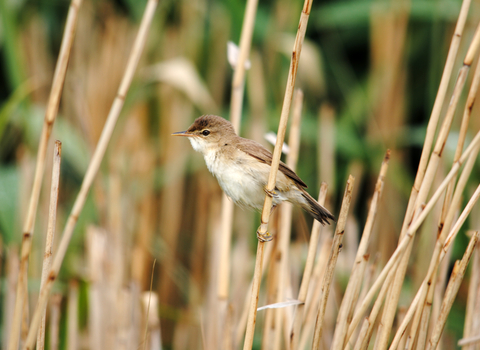
©Amy Lewis
Reed warbler
Listen out for the 'chattering' song of the reed warbler, while wandering the UK's lowland wetlands in summer. A small, brown bird, they are quite hard to see.
Scientific name
Acrocephalus scirpaceusWhen to see
April to OctoberTop facts
Category
Stats
Length: 13cmWingspan: 19cm
Weight: 13g
Average lifespan: 2 years
Classified in the UK as Green under the Birds of Conservation Concern 5: the Red List for Birds (2021).
